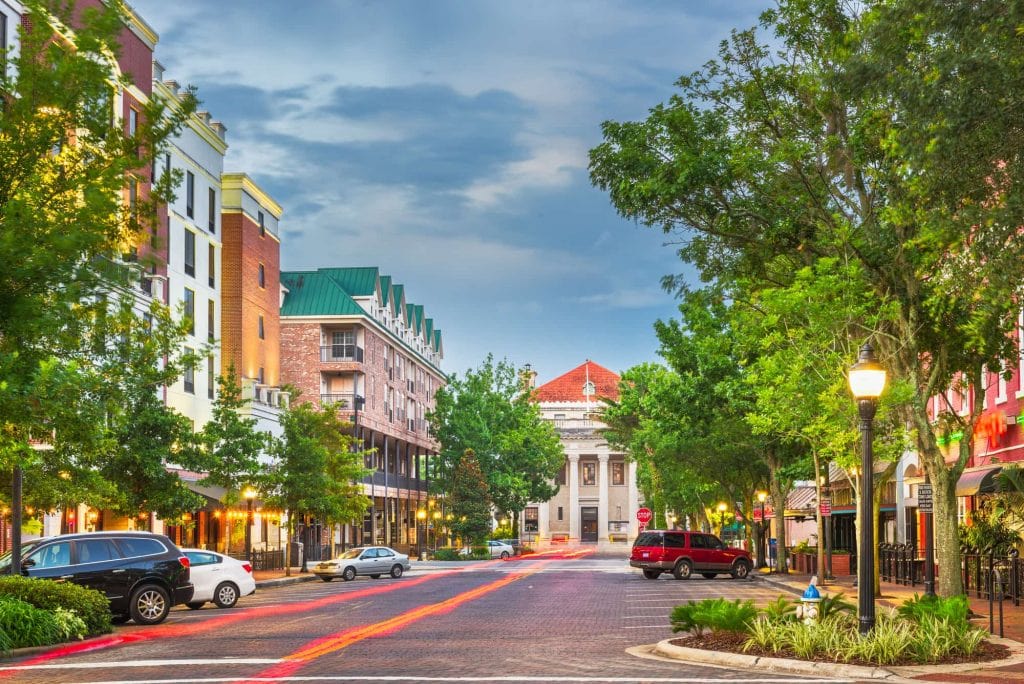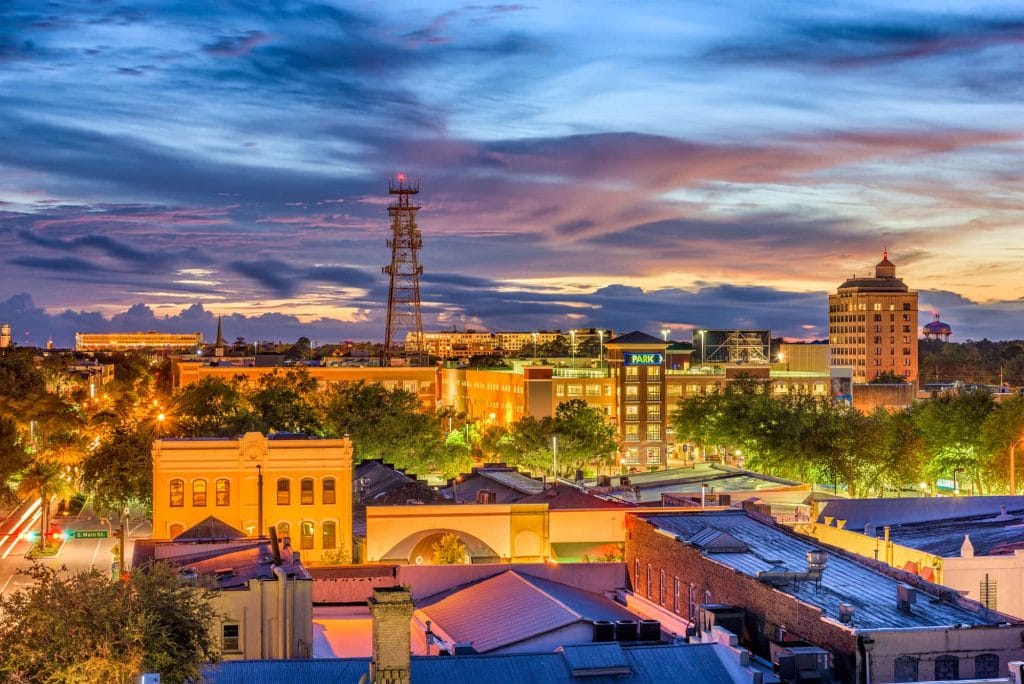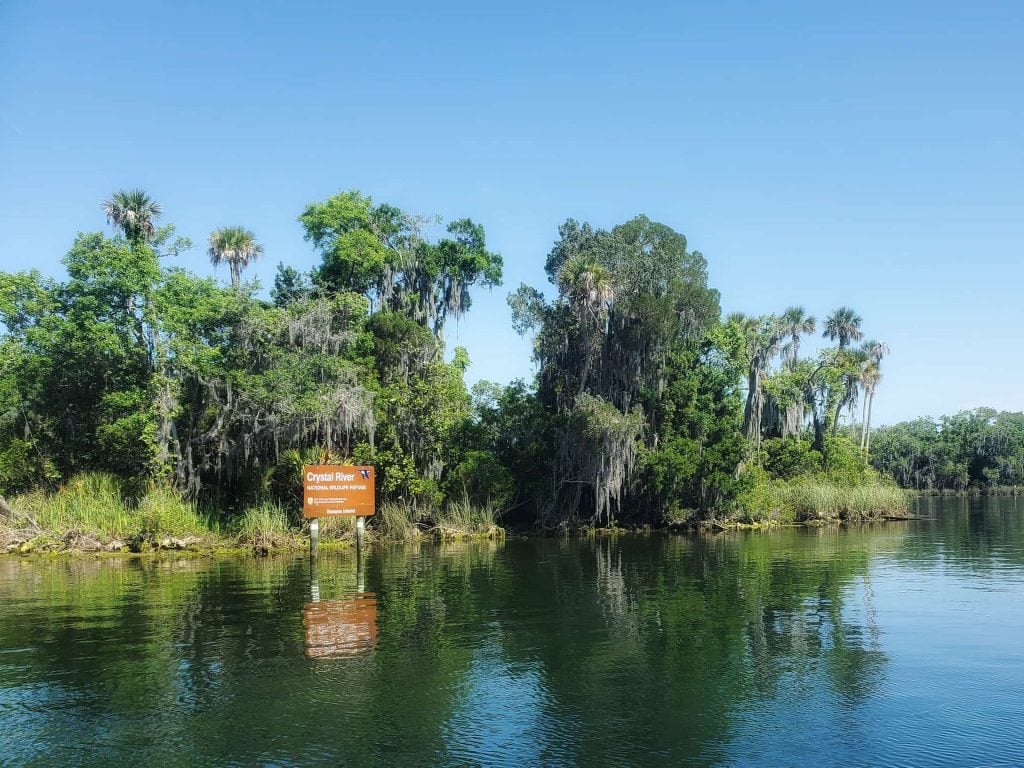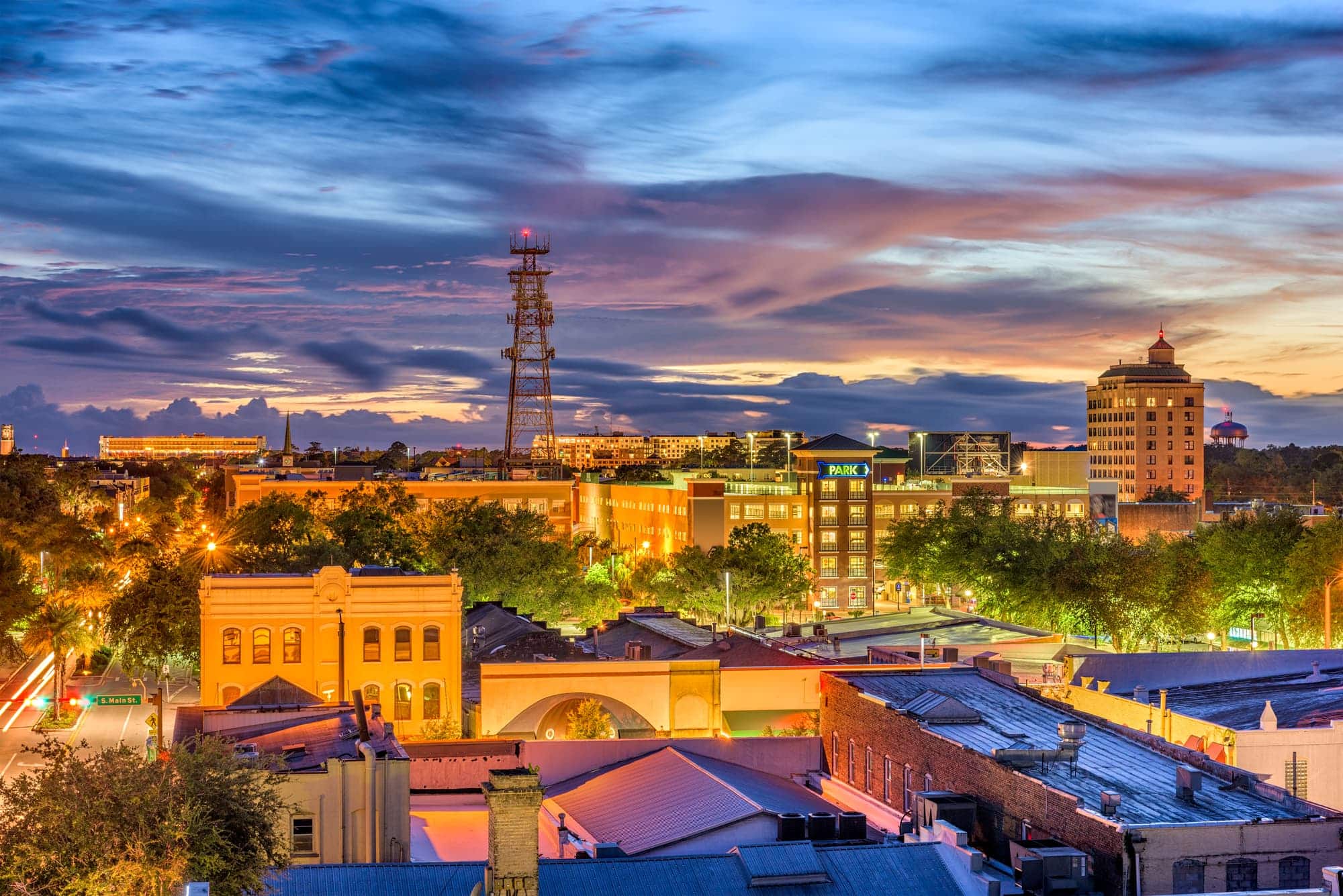If you’re considering a move to Gainesville, Florida, there are a few things you need to know before leaping. From the vibrant culture and charming historic districts to the abundant natural beauty and top-notch education system, Gainesville offers plenty for those seeking a fulfilling and exciting life in the Sunshine State.
In this article, we’ll guide you through everything you need to know when moving to Gainesville, FL, from the best neighborhoods and the top attractions to the local job market and healthcare resources. We’ll also cover the city’s rich history and unique cultural heritage and provide tips for settling and making the most of your new home.
Gainesville, FL, at a Glance
Gainesville, FL, is a vibrant and rapidly growing city in Alachua County, Florida, in the north-central part of the state. It is known for its cultural diversity, beautiful natural scenery, and world-renowned academic institutions. It’s located a few hours away from some of the major cities in Florida.
It’s the biggest city in Alachua County, with over 140,000 people, and covers an area of 62.4 square miles. It’s also the main city in the Gainesville Florida Metropolitan Statistical Area and the largest city in North Central Florida.
The beautiful city boasts a warm and welcoming community, excellent healthcare facilities, affordable housing, and various recreational opportunities and fun activities for residents and visitors alike. Whether you’re a young professional, college student, retiree, or family with children, Gainesville offers something for everyone.
Cost of Living
Gainesville is an affordable city, with the average cost of living being lower than the national average. While median rent and mortgage are a little high, your utilities will be much lower, meaning you’ll spend less than in some of the bigger U.S. cities.

Housing costs in Gainesville are reasonable, with a median home price of around $215,000. Renting is also affordable, with an average rent of $1,165 per month for a one-bedroom apartment. According to Rentcafe, this rent is lower than the national average, which has surpassed $2,000. Essential services like water and electricity are reasonably priced, with an average monthly bill of around $100.
Gainesville has several excellent hospitals and clinics, but medical costs can quickly increase. For example, the average price of a routine doctor’s visit can be anywhere from $100 to $200, while a specialist visit can be even more expensive.
Grocery shopping in Gainesville is relatively affordable, with a gallon of milk costing around $2.50 and a loaf of bread costing around $2.70. Eating out can be pricey, with a basic meal at a mid-range restaurant costing around $15.
Gainesville, FL, Economy
Gainesville is a vibrant city with a diverse economy, and there are plenty of opportunities for everyone. The city has a healthy mix of industries, including healthcare, education, technology, and retail, contributing to a robust job market. It also has a booming tourism industry.
The housing market in Gainesville is relatively affordable compared to other cities in Florida. The median home cost in Gainesville is $208K, lower than the state’s median home value of $259K. Renting is also an option, with the median monthly rent price being $1,143.
Florida has a reputation for being a tax-friendly state, and Gainesville is no exception. Florida has no state income tax, meaning you keep more hard-earned money. The minimum sales tax in Gainesville is 7.5%, which is relatively low compared to other states. Property taxes are also reasonable, with an average effective property tax rate of 0.85%.
The average income in Gainesville is around $44,000. This is slightly lower than the state’s median household income of $53,000. However, the lower cost of living in Gainesville means you can still live comfortably on a lower income.
Real Estate in Gainesville
Gainesville has a variety of neighborhoods to choose from, with homes ranging from historic bungalows to modern apartments.
The housing market in Gainesville is strong, with current home prices averaging around $200K. You’ll find various options, from modest starter homes to sprawling estates. If you want to buy, be prepared for a competitive market, as homes sell quickly.
There might be price gouging to help curb demand but be ready to offer 2% to 3% above the asking price. For this reason, finding reliable and trustworthy real estate agents is crucial to ensure you get the best possible deal for the property.
Top Gainesville Neighborhoods
As for neighborhoods, Gainesville has plenty of options to suit your needs. Here are four of the best:
- Haile Plantation: This planned community is known for its tree-lined streets and spacious homes. With plenty of green space and top-rated schools, Haile Plantation is a popular choice for families.
- Duckpond: If you’re looking for historic charm, Duckpond is perfect. Located just north of downtown Gainesville, Duckpond is known for its beautiful Victorian homes and tree-lined streets.
- Tioga: This newer community offers a variety of housing options, from single-family homes to townhouses and apartments. With plenty of shopping and dining options nearby, Tioga is superb for those who want to be close to everything.
- N.W. 39th Avenue: Located just north of the University of Florida, this neighborhood is popular with students and young professionals. You’ll find plenty of affordable apartments and townhouses. You’ll also have easy access to the university and downtown.
Schools in Gainesville
Gainesville, Florida, has many educational institutions, including public, private, and religious schools. There are also several colleges and universities, making it a fantastic place for students of all ages to pursue their education.

The Alachua County Public Schools district operates Gainesville’s public school system with 51 public schools. It offers diverse programs, including gifted and talented programs, special education services, and vocational education opportunities.
Some of the best schools include F. W. Buchholz High School, P.K. Yonge Developmental Research School, and Hidden Oak Elementary School.
There are also several private schools in Gainesville, including religious schools affiliated with the Catholic and Episcopal churches. These schools offer an alternative to the public school system for families seeking a more specialized education for their children.
Gainesville is also home to the University of Florida, one of the largest and most prestigious universities in the U.S. The university offers numerous undergraduate and graduate programs, including business, engineering, education, and health sciences.
In addition to the University of Florida, Gainesville is home to Santa Fe College, which offers associate degrees and vocational certificates in various fields. The college is known for its robust educational programs in health sciences, business, and technology.
Gainesville, FL, Trademarks
Gainesville is known for its rich history, culture, and traditions, making it a unique place to live. From its vibrant music scene to its natural beauty, this charming city has something for everyone.
The cost of living, job market, real estate market, and schools are some of the most important factors to remember when moving to Gainesville, FL.
Healthcare Is Top-Notch
Gainesville, FL, has a reputation for healthcare with a robust healthcare system, various medical facilities, several fitness centers, and senior care.
It is home to the University of Florida Health, a nationally recognized hospital system that provides top-notch medical care to residents. Additionally, The North Florida Regional Medical Center is another nearby healthcare facility with outstanding ratings.
The area also has private medical practices, clinics, and specialized healthcare centers. From invasive treatments like colon cancer surgery to hip replacement and cosmetic procedures, the healthcare system in Gainesville is well-equipped to handle any medical needs that may arise, providing residents with access to quality care.
Don’t Forget Your Sunglasses
If you’re moving to Gainesville, Florida, you must bring your sunglasses! With warm and sunny weather year-round, protecting your eyes from the bright Florida sun is essential. Remember to pack your shades, sunscreen, and a hat, and stay protected while enjoying Gainesville.
So, Where’s the Swamp?
Gainesville is known as the “Swamp” due to the hot and humid summers. The nickname comes from the surrounding wetlands and the nearby Paynes Prairie Preserve State Park.
The humidity can be intense, so stay hydrated and wear lightweight clothing during the summer. However, the mild winters make up for the hot summers, with pleasant temperatures and plenty of outdoor activities.
College Town
Gainesville is home to the University of Florida, one of the largest universities in the United States, and Santa Fe College, a nationally recognized community college. With over 70,000 students attending these institutions, it’s no wonder that Gainesville is considered a bustling college town.

These schools provide a lively cultural scene and numerous entertainment options, including sports games, concerts, and theater productions.
The university also contributes to the local economy and job market, making Gainesville a terrific place for young professionals and families.
You Need a Car
Gainesville is a spread-out city, so having a car is essential for getting around. The public transportation system is limited, and biking or walking can be challenging during the hot and humid summers.
A car also provides access to nearby attractions and beaches, ensuring you enjoy all Gainesville offers. Remember to get a good car insurance policy and budget for gas, parking fees, and maintenance costs.
Business Is Booming
Gainesville is an attractive city with beautiful weather and a growing business hub. The economy in Gainesville is booming in the education and healthcare industries. With the University of Florida and UF Health Shands Hospital as the largest employers in the area, it’s no surprise that Gainesville is becoming a key player in these industries.
Additionally, there has been a surge in startups and small businesses, with resources like the Gainesville Area Chamber of Commerce and the Gainesville Technology Entrepreneurship Center supporting entrepreneurship and encouraging industry diversity.
The area is considered to have more business incubators per capita than anywhere else in the United States. Gainesville’s friendly and supportive business climate makes it an attractive place for businesses to grow and thrive.
Nature Abounds
Gainesville, FL, is an ideal place for nature enthusiasts. With a host of parks, gardens, and walking trails, there is always something new to explore. Kanapaha Botanical Gardens, Carson Springs Wildlife Conservation, and the Butterfly Rainforest are just some of the parks available.
If you’re a nature lover, you should also visit the Florida Museum of Natural History on the University of Florida campus, with many beautiful sights to explore.
Gainesville’s commitment to sustainability and conservation is evident in its many nature preserves and parks, such as the Sweetwater Wetlands Park, Devil’s Millhopper Geological State Park, and Paynes Prairie Preserve State Park. But beware of Florida gators, as they abound in Gainesville.
Spring Arts Festival
The Spring Arts Festival is a spirited annual event in Gainesville showcasing various artwork and performances from local and regional artists. The festival offers an exciting opportunity to experience the city’s creative and cultural scene, with live music, food vendors, and various activities for all ages.
Visitors can expect to see beautiful paintings, sculptures, and crafts while enjoying the sunny Florida weather. They can also partake in various cultural activities. The Spring Arts Festival is a perfect example of the thriving arts community in Gainesville and a must-see event for anyone interested in exploring the city’s unique culture.
Mr. Wayne?
No, you won’t see Batman. However, you can see bats. The October Florida Bat Festival is a highly anticipated event in Gainesville. It celebrates bats and features educational exhibits, live animal displays, and a chance to meet live bats.
Visitors can learn about the importance of bats, their role in pest control, and conservation efforts to protect them. The festival includes bat house-building workshops, children’s activities, and food vendors.
Hospitality Is Great
Gainesville is known for its excellent hospitality, with friendly locals who welcome visitors with open arms. You can expect a warm and welcoming atmosphere when you move there.
The city is home to many hotels, including popular chains and independent options, offering a range of amenities to make your stay comfortable. With numerous dining options, you can enjoy local and international cuisine, and the nightlife scene is lively and vibrant.
Constant Growth
Gainesville is constantly growing and developing, with a large entrepreneurial community and numerous housing developments and cultural events. The city’s strong economy, affordable cost of living, and top-notch healthcare and educational institutions make it attractive for people from all walks of life.
Retirees Will Have a Blast
Gainesville’s age diversity is excellent for retirees. With its warm climate, friendly residents, and relaxed pace of life, Gainesville is the perfect place to enjoy retirement. The city has a thriving arts scene, with theaters and galleries showcasing local and international talent.
There are also plenty of downtown neighborhood nature parks and outdoor spaces to explore, from walking trails to botanical gardens. Retirees can take advantage of the city’s affordable living, affordable health care costs, and lively social scene.
Gainesville Climate
Gainesville’s climate is mostly warm and humid, with a subtropical feel. The summers are hot, with days with temperatures reaching around 90°F and high humidity levels. Winters are mild, with days with temperatures ranging from around 40°F to 60°F.
Like the entirety of Florida, Gainesville gets abundant sunshine, boasting an impressive average of 224 days of sunshine per year. This surpasses the national average by nearly a month.
The area receives abundant rainfall, especially during the summer months. Hurricane season lasts from June to November, and the region can be affected by tropical storms and hurricanes. It’s important to pack accordingly for the warm and humid climate, with plenty of lightweight clothing and sunscreen to protect against the sun’s rays.
You May Have to Drive to Find Beaches

Gainesville is located in the north-central part of Florida and is known for its beautiful natural surroundings. However, it’s not close to any beaches. You can enjoy a day near an attractive water feature by visiting Crystal River.
If you’re looking for a beach day, you’ll have to drive outside the city limits to the nearest coastline, like Daytona Beach or West Palm Beach.
FAQ: Moving to Gainesville FL
We researched and answered the most commonly asked questions about Gainesville, FL, to help make your move easier.
Is Gainesville, Florida, a good place to live?
Yes, Gainesville is a fantastic place to live. It has a strong economy, top-notch healthcare, excellent schools, a college town atmosphere, and plenty of outdoor activities. However, consider factors like the hot and humid climate, the need for a car, and the distance to beaches.
A local real estate agent can help you find the perfect home in Gainesville and provide added information on the local scene.
What are the pros and cons of living in Gainesville, FL?
The pros of living in Gainesville, FL, include a thriving economy, top-notch healthcare, and a college town atmosphere. However, the cons involve a high cost of living, limited beach access, and humid summers.
Is Gainesville, Florida, expensive to live in?
Gainesville is affordable compared to other parts of Florida and most of the U.S., with a lower cost of living and median home prices. However, certain factors, such as healthcare and transportation, can be expensive, so factor those in when considering the overall cost of living.
Why are people moving to Gainesville, FL?
People are moving to Gainesville due to its top-ranked universities, excellent healthcare, and affordable cost of living. The city has a booming economy, a diverse and friendly community, and plenty of outdoor activities. Its warm weather and proximity to natural attractions make it an attractive destination.
Do hurricanes hit Gainesville, FL?
Gainesville is susceptible to hurricanes because it’s in Florida. Although the city is inland, it can still experience hurricane effects, such as strong winds and heavy rainfall. Prepare for hurricane season and follow local emergency management guidelines.
What are winters like in Gainesville?
Winters in Gainesville are mild, with average temperatures ranging from around 50°F to around 70°F. Snow is scarce, but frost can occur in the early mornings. Rainfall is higher during the winter months but not constant.
What is a good salary in Gainesville, Florida?
A good salary in Gainesville can vary depending on individual circumstances. According to data from the Bureau of Labor Statistics, the mean annual wage for all occupations in the Gainesville metro area is around $47,000. However, salaries can vary depending on the industry, education level, and years of experience.
Is Gainesville, FL, a walkable city?
Gainesville is not a walkable city since it is primarily designed for cars. However, there are some walkable areas, such as downtown Gainesville where you can find a variety of shops, restaurants, and entertainment venues.
Some residential neighborhoods are also walkable, but most people rely on cars for transportation. You’ll need a car to run errands and fully explore the city.
Is Gainesville better than Orlando?
Gainesville and Orlando are different cities, each with unique advantages and disadvantages. Gainesville is a smaller college town with a lower cost of living, better air quality, and less traffic.
On the other hand, Orlando is a larger metropolitan area with more job opportunities, entertainment options, and a warmer climate. Ultimately, the choice between the two will depend on individual preferences and needs.
What airport do you fly into for Gainesville, FL?
The Gainesville Regional Airport (GNV) is the primary airport serving Gainesville, Florida.
Does Gainesville, Florida, have a beach?
No, Gainesville, Florida, doesn’t have a beach. While Florida is known for its coastal cities and beaches, Gainesville is inland and not close to the coast.
To reach the nearest beach, you would need to drive to one of the nearby coastal cities, such as Jacksonville or St. Augustine, which are approximately one-to-two hours away.
Final Word
Gainesville, FL, is a welcoming city with a strong economy, top-notch healthcare, excellent schools, and plenty of outdoor recreation opportunities. While the weather can be warm and humid, it’s a small price to pay for the many benefits of living in this thriving college town.
Whether you’re a retiree looking for a fun and active community, a young family seeking great schools, or a professional looking for a growing job market, Gainesville has something to offer everyone.
To make house hunting easier as you plan your move, search for properties and sign up for updates on new listings when they come on the market on eXp Realty. Working with a local real estate agent who knows the area well can also help you find your dream home in Gainesville, FL, and enjoy all the incredible city offers.





